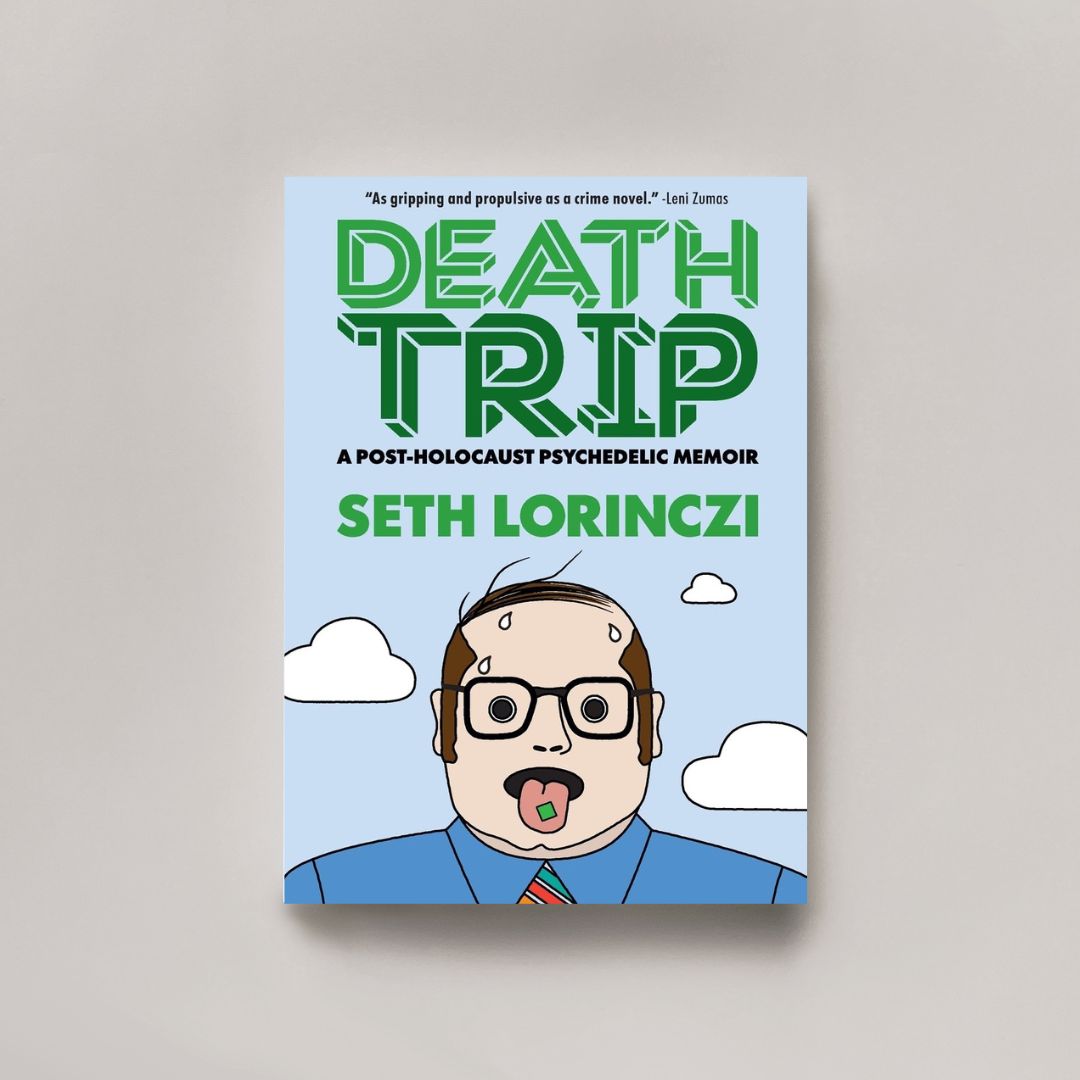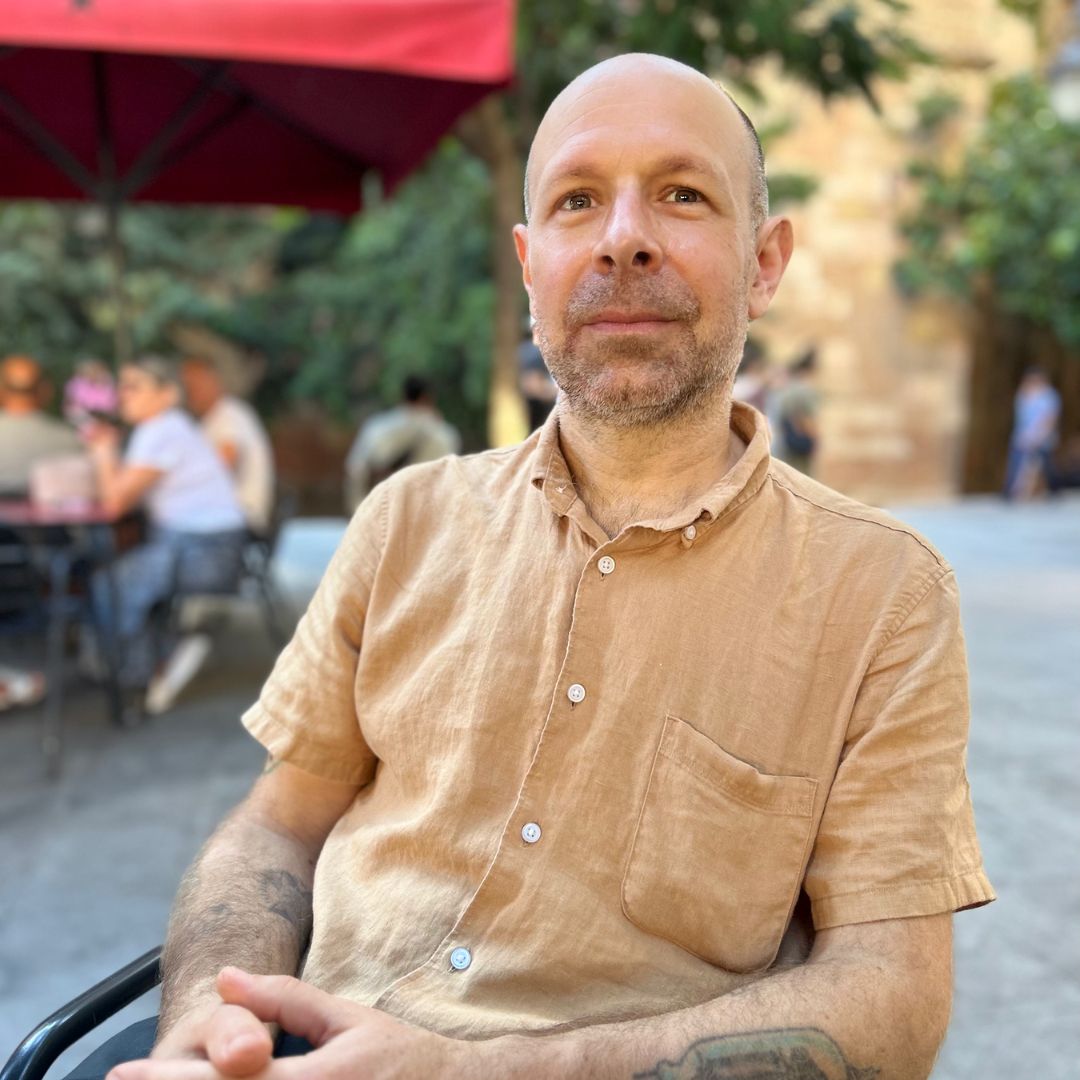A Reality Sandwich Book Review
Seth Lorinczi’s Death Trip: A Post-Holocaust Psychedelic Memoir is not your average book about psychedelics. At times, it didn’t feel like it was about psychedelics at all. At its core, it’s a vulnerable first-person account of the author’s trip through life, and the psychedelic undercurrent is relevant, but not essential, to the magic of this book.
I don’t mean to undercut the value of psychedelic medicine. What I mean to say is that Lorinczi delivers an incredible memoir—whether you’re in it for the psychedelics or not.


About the Author
Lorinczi is a Portland-based writer and musician known for his explorations into psychedelics, punk culture, and personal history. Following a traumatic early childhood marked by the sudden death of his mother, Lorinczi developed a fascination with uncovering hidden layers of existence.
This curiosity deepened as a young boy when he received a second hand telescope, sparking a lifelong fascination with the mysteries of the universe. His writing often explores themes of grief, identity, and transformation, drawing on experiences in the 1980s and 1990s D.C. punk scene and his recent journey through psychedelic therapy to confront his family’s Holocaust history.
Death Trip: A Post-Holocaust Psychedelic Memoir, is part memoir, part cultural critique, with a heavy hand on exploring the impact and relevance of ancestral trauma—and what it takes to strip it down to its bare bones and find healing.
Is Trauma Genetic?
Death Trip follows Lorinczi on a winding road of self-discovery that ultimately begs the question: What impact does his family’s history have on his marriage, career, and self-image? And is it all a bunch of woo-woo, or is there actual evidence to support this possible connection?
Scientific research increasingly supports the idea that trauma can pass down through generations. Studies in epigenetics show that traumatic experiences can alter gene expression, affecting how descendants respond to stress. For instance, descendants of Holocaust survivors and other trauma-exposed populations exhibit similar epigenetic markers linked to heightened stress responses.
Animal studies reinforce this, showing that trauma-induced changes in behavior and stress response can manifest in offspring who were never exposed to the original stressor. Psychologically, children of trauma survivors often experience “second hand trauma,” internalizing fears and coping mechanisms rooted in their parents’ pasts.
This growing field reveals that trauma’s impact isn’t confined to one generation—it reverberates through families, shaping emotional and mental health across time.
Keep in mind—at no point does Lorinczi pass the buck of responsibility for his own actions onto his lineage and the trauma his grandparents and parents faced. Rather, his journey to learn the truth of his family history offers insights into how to heal and deal with the ripples of this trauma as they present themselves in his now-adult life.
Lorinczi’s Death Trip
When Lorinczi and his wife, Julianna, reach a breaking point in their marriage, their open-minded therapist suggests a session with MDMA. Though not unfamiliar with psychedelics, they’ve never used these substances for their known therapeutic value.
Lorinczi doesn’t sugarcoat the value of psychedelics—it’s not a panacea, and his marriage wasn’t better overnight. But something definitely shifted, something that gave them hope, a lifeline, a shining light at the end of a dark tunnel.
A Doorway to Illumination
Lorinczi’s road with psychedelia trekked onward. He and Julianna continued with MDMA therapy, and then sat numerous times with ayahuasca, and experimented with perhaps the most powerful substance of them all: 5-MeO-DMT.
All the while, Lorinczi sifts through incomplete family stories, plugging away at the missing pieces now that both of his parents have passed away. Eventually, he’s found everything he can in journals and through phone calls. It’s time to get to the heart and history of his family’s story. It’s time to take a trip home to Hungary.
A month-long journey to his homeland glues him back together and breaks him apart at the same time. Lorinczi meets family members and friends, recounts his own childhood memories through the food his grandmother prepared, visits old haunts he’s only read about, and ultimately—comes face to face with the harsh reality of a family deeply traumatized by the Holocaust and the horrendous tragedy of war.
Coming Home
Death Trip is written in the past, the present, all while outlining the future that Lorinczi is creating. It’s more than a memoir about psychedelics; it’s an intimate excavation of generational trauma and a raw exploration of what it means to seek healing against an inherited backdrop of pain.
Lorinczi doesn’t offer easy answers or a formula for recovery. Instead, he shows how confronting family history, however painful, can illuminate a path forward. His willingness to engage with his past—through ancestral ties, psychedelic therapy, and the rediscovery of his roots—makes this book a powerful reminder of our capacity for resilience and renewal.
We live in a world where the effects of trauma are often dismissed as personal burdens, but Death Trip invites readers to reconsider what it means to carry both the weight and wisdom of those who came before us. For anyone interested in healing, history, or the profound ways in which we connect to our ancestors, Lorinczi’s journey offers a deeply resonant experience.













